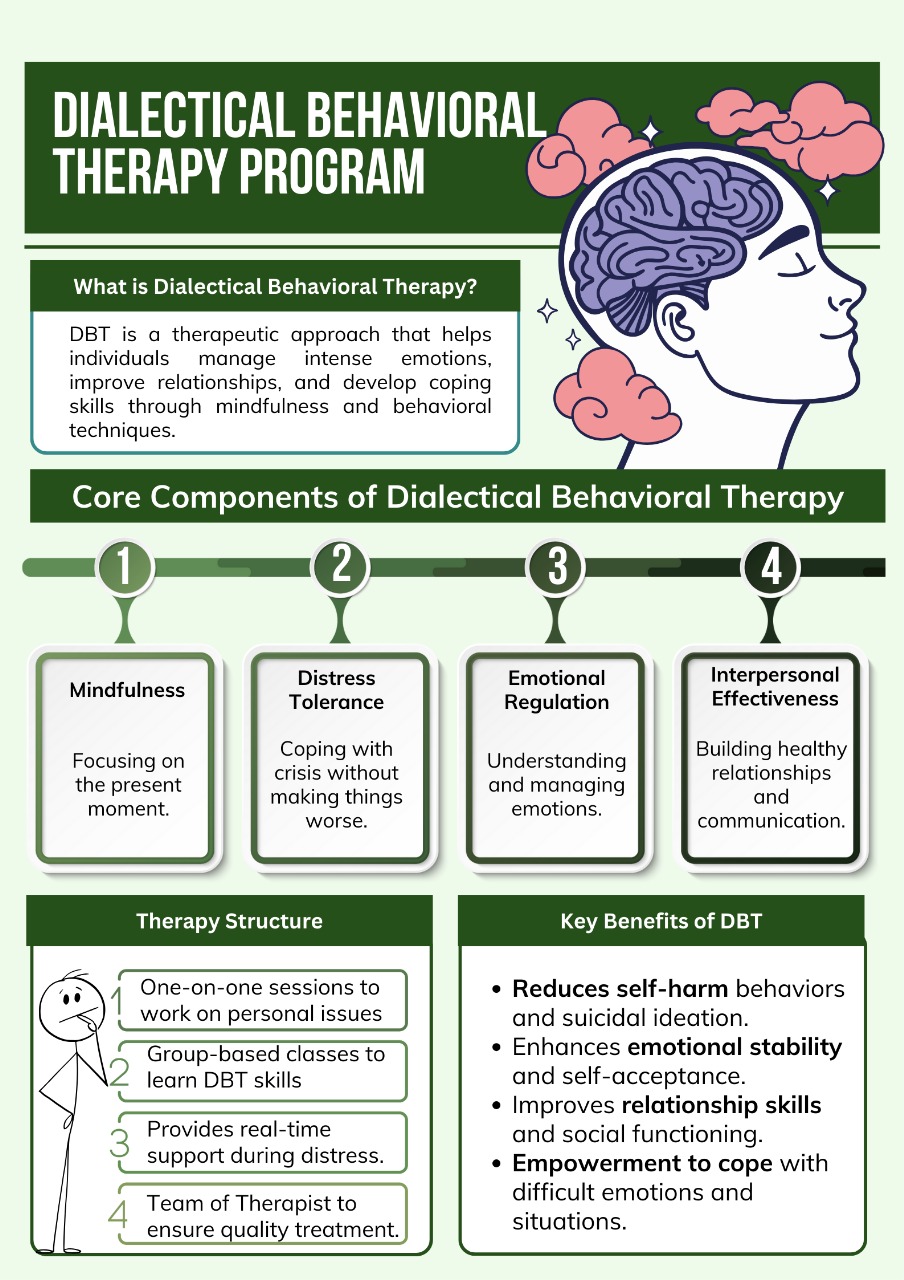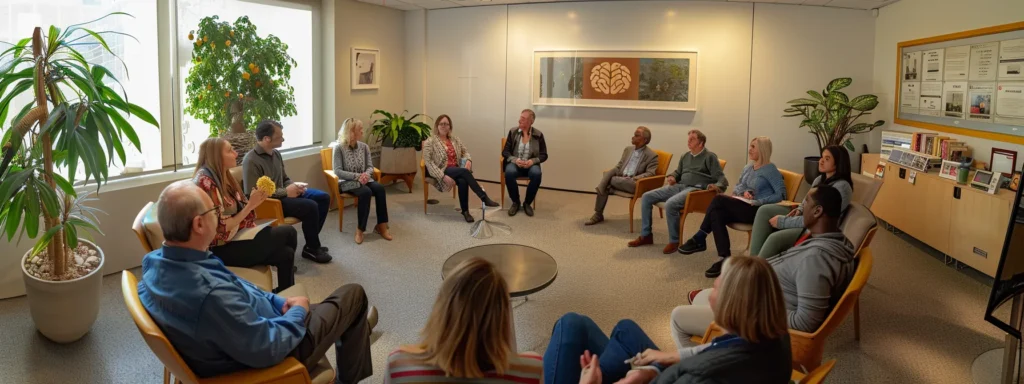
Evidence-Based Dual Diagnosis Outpatient Treatment in Massachusetts: The Gold Standard for Co-Occurring Disorders
Living with a dual diagnosis can feel like a storm you can’t outrun. When you’re fighting two demons, your mind pulls you in one direction and addiction tugs you in another. The chaos gets too loud, and some days even the littlest things feel like climbing a mountain.
Also, if you start (or restart) using a substance to escape a mental health struggle, you’re filled with guilt and feel like a failure. No one can understand these challenges from an outside view, and those facing them cannot find a way out.
But the truth is, there is a way out with evidence-based dual diagnosis treatment. It gives you tools that are proven to calm your thoughts and manage your cravings, so you can control the steering wheel of your life.
If you want to lift that weight, keep reading to know how evidence-based dual diagnosis outpatient treatment in Massachusetts can help.
How Does Evidence-Based Dual Diagnosis Outpatient Treatment in Massachusetts Work?
A dual diagnosis outpatient treatment is a program where you get help without having to live at a facility (which is mandatory if you follow the inpatient route).
You visit the center a few times a week to get therapy, counseling, and medication support as recommended by your physician.
These care plans are decided after your initial assessment, so the treatment matches what you’re battling and what you want to achieve.
Also, as you live at home and follow your normal routine, you don’t feel isolated while treating your dual diagnosis, and you get to test what you learn at the treatment center in real life.

Evidence-Based Dual Diagnosis Outpatient Treatment in Massachusetts Used for Thorough Healing
Evidence-based dual diagnosis outpatient treatment in Massachusetts helps you heal without stepping away from your life. Here are some proven and tested evidence-based therapies that work well in an outpatient treatment plan:
Cognitive Behavioral Therapy (CBT)
CBT is a talk therapy focused on recognizing your negative thoughts and eventually helping replace them with healthier ones. It focuses on changing how you think because your thoughts directly shape your behaviors.
Many people with dual diagnosis fall into destructive thinking patterns. They might internalize that their situation cannot be helped and that substance use is their only resort.
Therefore, experts use CBT during evidence-based dual diagnosis outpatient treatment in Massachusetts to break that pattern. As a result, you can replace your negative thinking with balanced beliefs. This therapy also teaches practical skills so you can manage triggers and cope with stress. The end goal is to shift your thoughts in a better direction and help you respond differently to cravings.
Dialectical Behavior Therapy (DBT)
DBT is another part of evidence-based dual diagnosis outpatient treatment in Massachusetts that teaches you practical skills to manage emotions. In it, you also learn to handle stress, stay present instead of sulking about the past or worrying about the future, and communicate more clearly.
This therapy is for people who struggle with intense emotions that push them towards impulsive behavior or substance use.
Inside DBT sessions, the physician teaches you four core skills: emotional regulation, tolerating distress without breaking down, mindfulness, and interpersonal skills.
These things help improve how you respond under stress and manage overwhelming feelings without turning to substances.
If someone suffers from a mood disorder or has a trauma history, this therapy works for them.

Medication-Assisted Treatment (MAT)
As the name suggests, MAT means using medicines to help a patient come out of a dual diagnosis. The physicians use approved medications to reduce your cravings and help manage withdrawal symptoms. These meds are proven to restore chemical balance in your brain, which is why they’re always combined with counseling or behavioral therapy.
As a result, MAT makes it easier to focus on behavioral change instead of constantly fighting physical urges. If a patient faces daily triggers that can tick off their mental well-being or increase their cravings, doctors prefer adding MAT to evidence-based dual diagnosis outpatient treatment in Massachusetts. It provides a layer of medical support that improves treatment adherence and stability.
Motivational Interviewing (MI)
Motivational interviewing helps you explore your reasons for change and strengthens your desire to achieve it (whether it’s substance dependence or weak mental health). It helps build your motivation through supportive conversations instead of pressure.
Also, MI is a collaborative method, so it can strengthen a person’s internal motivation for change. Since many with dual diagnosis feel stuck between wanting recovery and fearing life without substances, this change brings out their inner motivation and makes it stronger. Rather than using confrontation, therapists use targeted questions and reflective listening to build commitment step by step.
Why Evidence-Based Dual Diagnosis Outpatient Treatment in Massachusetts Works
Choosing an evidence-based dual diagnosis treatment means you follow an approach that’s been proven to work in the real world. Here’s why it’s considered practical and sustainable:
- Constantly Updated for Best Results: Evidence-based therapies and techniques are regularly improved based on new research and outcomes. Rest assured knowing that your treatment is always aligned with the most relevant and science-backed methods.
- Focuses on Real Causes: Instead of only easing your symptoms, evidence-based care addresses their causes, like past trauma, distorted thoughts, and lack of emotional regulation (as that can push you to try escape routes like drinking and using). Tackling these core issues builds mental resilience and healthier coping habits.
- Builds Skills for Daily Life: Outpatient care lets you practice what you learn in therapy outside in the world almost immediately. Such a hands-on approach makes those tools stronger and boosts your confidence.
We’re Here When You’re Ready
This healing journey is not easy, and the weight you’re carrying is heavy. And you don’t have to go through any of it alone because we see them.
The Forrest Behavioral Health team is here to listen and walk beside you every step of the way. Healing doesn’t happen overnight, but with the right support, it does happen. So don’t let that darkness win: call us today at 780-570-5781, and let’s open the door for light.






